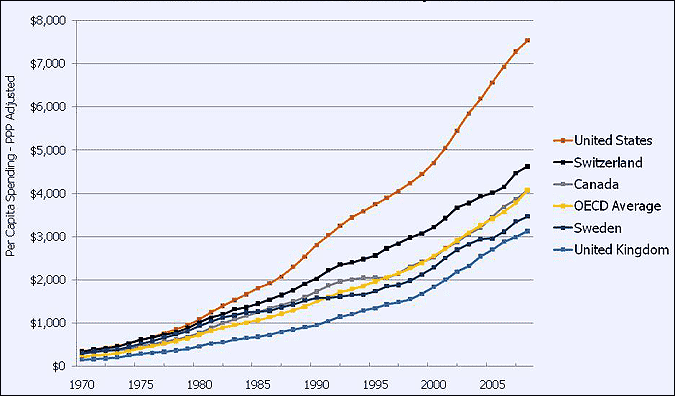You enter the Metropolitan Community Clinic at Helliniko from a nondescript parking lot in suburban Athens, in an area that hosts a decommissioned American military base. It does not look like much. But it is. It is a very big deal indeed.
The MCCH saves people. It provides health care to down-on-their-luck Greeks who have no access to public health care and no money to pay for private clinics. There are many such people, because in Greece access to the national health service is tied to employment. When Greeks lose their jobs, they have a grace period of one year: they’d better find another job within that period, because if they don’t they are out of health insurance. If they fall sick, they have to come up with something, or die.
It’s not just Greeks. It turns out in every European Union countries but the United Kingdom and Italy, employment is a pre-requisite for access to health care. But Greece was it hardest by the 2008 crisis: many more people than elsewhere have turned into long-term unemployed. Everyone is struggling: “We had poor people ten years ago, too – shrugs Maria, a psychologist volunteering at MCCH – but at that time people could fall back on their families, or their neighbors, for help. Not anymore: their families and neighbors are themselves in trouble, and there’s little they can do. People are getting desperate.”
In 2011, some senior doctors started comparing notes, and they saw a perfect health care storm brewing at the horizon. “We knew something very bad was coming, and people would die – says Maria – so we decided we must do something.”
“Something” in this case turned out to be the MCCH itself. This is a very strange animal as health care providers go.
- It has no legal existence. Its literature proudly proclaims: “ MCCH is a volunteer organization without Legal or Taxable status and it is not a ‘Non-Profit-Making-Organisation’.” Maria: “We are technically illegal”.
- It does not accept donations in money. It does accept donations in kind: medicines, equipment, blood sample analyses.
- It operates from a building that belongs to the Municipality of Helliniko-Argyropoulis. Though none of its employees works in the building, the Municipality still pays the electricity and phone bills that the MCCH generates. My heart goes out to the anonymous “bureaucrat hacker” that entrusted a government building to an informal group of citizens, which by definition cannot sign contracts or participate in tenders.
- It is very autonomous with respect to institutions and power. MCCH was recently proposed for the European Parliament European Citizen’s Prize 2015, but they very publicly turned it down. Reason: “Europe is an important cause of the problem we exist to address. Don’t give us award, change your policy”.
- It treats only people who have no access to the public health care system. One exception: low-income families with many children, who are living hand-to-mouth on 450 euro a day and simply cannot afford to buy medicines (Maria: “It happens”).
- On top of diagnosis/prognosis, MCCH supplies free medicines, baby food and nappies.
- It has 300 volunteers, of which a little over half are doctors of various specialisations and pharmacists.
- It operates with practically no hierarchy and no management. People decide by themselves what role to play, by joining one of several groups (about 10 members to a group) which exist to carry on specific tasks (like onboarding new patients). An organising committee does its best to keep people on the same page. A weekly meeting votes on general issues. A mailing list deals with specific matters.
- When they are not volunteering with MCCH, volunteers exchange services and small favours through a time bank: two massages against one hour of English lessons etc.
There are now 68 such clinics in Greece. Take a moment to think about what this means: in four years, thousands of enterprising Greeks with no money, no command structure and who do not even know each other have created a parallel health care system that succeeds where the public health service and private sector services both fail: it keeps reasonably safe the poorest strata of the population. Notice that the Greek health care budget in 2011 was over 6 billion euro.
Wait. Self-organised people with no money and no organisation that beat credentialed, moneyed professionals at their own game? We’ve seen this before. It was Wikipedia outcompeting Encyclopedia Britannica. It was OpenStreetMap pushing to the curbs Garmin and TomTom. It was Facebook groups coordinating disaster relief after the Nepal 2015 earthquakes and the Tbilisi 2015 flash flood, way before the government and NGOs could get their act together. It was Internet-coordinated young newcomers changing the rules of the political game, and even bringing down entire regimes who seemed to have all the power and all the money, in Egypt, Tunisia and Ukraine.
We have a word for these phenomena: we call them disruption. They are associated with supplying goods or services in a new way, that substitutes collective intelligence and distributed effort for vertical organisations. This new way happens to be vastly more efficient than the old ones.
I think the time has come for disruption in health care, and in care services in general. Why? Because, as the OECD pointed out, per capita health care expenditure grows much faster than GDP. In 1970, health care absorbed a respectable 5.2% of the GDP of the average OECD country. In 2008, it absorbed 10.1% (source). The system is under strain, and often – like in Greece, it reacts by denying care to those who most need it.
This is morally unacceptable, wasteful and stupid – especially when the Metropolitan Community Clinic at Helliniko and so many other experiences like it, in the world of care and outside it, has proven how much farther communities can go in taking care of their members when they are enabled to do it.
So, we are getting involved. Edgeryders has partnered up with five world-class organisations in research (University of Bordeaux, Stockholm School of Economics, ScimPulse Foundation), welfare policy-making (City of Milan) and digital fabrication (WeMake) to find, learn from, and enhance the experiences like MCCH all around the world. Our goal is a model of community-driven care services, based on modern science and open technology, but with the low overhead and human touch that communities can provide and large bureaucracies cannot. Our project is called OpenCare; the European Commission has generously agreed to support it through its Collective Awareness Platforms programme.
Whoever you are you are welcome to join us. After all, if you are human, you have considerable experience of giving and receiving care, and that makes you an expert. If you want to participate, or simply to know more, start here.
Photo: Theophilos Papadopoulos on flickr.com

